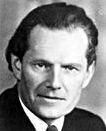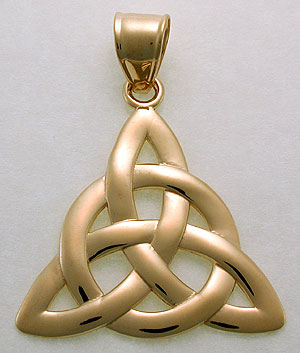 |
||||||||||||||||||||||||||||||||||||||||||||||||||||||||||||||||||||||||||||||||||||||||||||||||||||||||||||||||||||||||||||||||||||||||||||||||||||||||
|
|
||||||||||||||||||||||||||||||||||||||||||||||||||||||||||||||||||||||||||||||||||||||||||||||||||||||||||||||||||||||||||||||||||||||||||||||||||||||||
|
|
|
|
We need to first distinguish between earthly life (ephemeral, short, haphazardly in danger), and eternal life (earned, not in danger once chosen through strict obedience). Quite apart from eternity then, there are cultures of life that value saving lives highly in the world, and cultures of death that do not appear to respect life in the world. |
|
|
|
Christianity has no monopoly on assurances of eternal life under conditions of obedience to God, most religions deal with eternity for the individual in remarkably similar ways. The Abrahamic religions of Judaism, Christianity, and Islam all share the same concept of rewards of heaven for God-pleasing behavior. They differ however markedly in their respective “Value of Earthly Life” ... so much so that earthly life has almost no value, and killing and even murder are much more condoned in some scriptures versus others. That is of course a reference to Jihadism and Terrorism: the taking of innocent earthly life in the pursuit of goals are more military than religious, more territorial and materialistic than Spiritual. These are rejections of the value of human, earthly, innocent life. |
|
Does it matter, to be a culture of life instead of a culture of death? Does earthly life matter at all? Calmeyer somehow valued innocent lives around him, including Jews he never met, more highly than his personal danger of discovery, which at times was acute, when his overlords began to investigate the curious statistical oddities in numbers spoken free. Calmeyer participated in a culture of life, which is why Calmeyer’s personal intellectual pursuits and environment matter to us today. That culture, and specifically a Judeo-Christian system of moral and legal frameworks, was one of promoting and preserving innocent life. It must be said that in Christianity, all are guilty of sin from birth, so it may seem odd to speak of innocent life there (see also pages on Guilt and Innocence), but the value of an earthly life before God and man, any life of any race or creed, is an encompassing vision of humanity that has evolved in Western society, based on Greek, Roman, Jewish, and Christian principles, to a very high degree. In some ways, the vision has evolved more in everyone’s insistence on human material rights, than it has in the realm of valuing the life itself as a God-given gift, and that is unfortunate. |
|||
|
Judaism believes in the absolute sanctity and inestimable value of human life, a belief embodied in the Talmudic adage that if one saves a single life it is tantamount to saving the entire world (Sanhedrin 37a). "The value with which human life is regarded in the Jewish tradition is maximized far beyond the value placed upon human life in the Christian tradition or in Anglo-Saxon common law," wrote Rabbi J. David Bleich in the book "Jewish Bioethics." So deeply rooted is this value, he added, that it takes precedence "beyond virtually all other considerations." As a result, virtually any Jewish law -- and by extension most secular laws -- can be violated in order to save a life or even prevent a potentially life-threatening situation from developing.. As much as Judaism values a lawful society, it places an even greater value on preserving and nurturing life.. This might have been interesting to Hans Calmeyer, and he might have known about it, though he had relatively little direct contact with Jews (just one, in his office, who was arrested against his efforts to keep her). |
|||
ANCIENT VALUES OF LIFE ?A brief glance at the Greeks, who invented democracy, and the Romans and virtually all other ancient societies, shows us that we did not get our life values from them. RESPECT FOR LIFEThe basic right to life seems fundamental. We all want to live without fear of being arbitrarily deprived of life or dignity. As obvious and important as this seems to us today, however, it was not obvious or important in the ancient world. The ancient Greeks and Romans, as well as every ancient culture we know of, practiced infanticide - the killing of newborn children as a means of population control, sex selection (boys were desired, girls not), and ridding society of burdensome or deformed members. Babies that appeared weak or sickly at birth, or had even a minor birth defect or imperfection such as a cleft palate or harelip, were killed. This was not done by some Nazi-like baby removal squad, but by an immediate member of the family, usually the mother or father, often using methods that betray a cruelty beyond our modern imagination. Wrote the great humanitarian Seneca: "Children... weak and deformed we drown, not through anger, but through wisdom, preferring the sound to the useless." These societies also practiced human sacrifice and - when it came to the Romans - killing for entertainment. The Coliseum, and other circuses of its type, saw a level of cruelty and inhumanity beyond belief. Emperor Trajan, in the year 107 B.C.E., held games where ten thousand gladiators and three thousand wild animals fought to the death - which means thousands of human beings died - watched by spectators who ate, drank wine, and cheered the grisly spectacle. Instead, Abraham, the first Jew, introduced the idea of one loving God as the Creator of all. We are all God's children created in the "divine image" (Genesis 1:27). Deformed babies, slaves, women, and men - all have this divine image within them, and all have the right, therefore, to life. "Thou shalt not murder," the sixth commandment, is only one of many direct references to the infinite value of life found in the Bible. The absoluteness of the God-given standard set the Jews apart. And, indeed, for thousands of years no one much wanted to join their club. But eventually their vision and values spread worldwide. British historian Paul Johnson notes (A History of the Jews [Weidenfeld & Nicolson, 1987], Epilogue): Certainly the world without the Jews would have been a radically different place... To them we owe the idea of equality before the law, both divine and human; of the sanctity of life and the dignity of the human person; of individual conscience and so of personal redemption; of the collective conscience and so of social responsibility; of peace as an abstract ideal and love as the foundation of justice, and many other items which constitute the basic moral furniture of the human mind. Without the Jews the world would have been a much emptier place... It is almost beyond our capacity to imagine how the world would have fared if they had never emerged. For two thousand years, from Abraham to the birth of Christianity, the Jewish people alone championed the notion of a just and moral world based on humanity's relationship with a loving God. Then came Christianity and Islam, both spiritual offshoots of Judaism, which converted millions of people to the belief in One God. In modern history, the greatest spreader of Jewish values outside religion has been the growth of Democracy. During the last three centuries the founding fathers of both British and especially American democracy were overwhelmingly impacted by Biblical ethics. The Bible played a central role in the curriculum of the newly founded institutions of higher learning, with both Hebrew and Bible studies being required courses. At Yale, some commencement orations were delivered in Hebrew. The Biblical education of the Founding Fathers colored their attitude toward religion and ethics - and especially politics. America was to be the new place where the old Biblical vision would take root. Married to a Biblical standard of values, grass-roots democracy took root in America and in the last two hundred years became the fastest-spreading political system in the world. In 1800 there were three liberal democracies in the world: the United States, France, and Switzerland. In 1900 there were thirteen; in 1999, close to seventy. WHAT NEXT?So that's the story. The values held dear in modern democratic nations are largely a product of Judaism. http://www.torah.org/features/spirfocus/worldperfect.html |
|
Saving children is the prime value in Jewish life. The emphasis on education in Jewish life is part of this mission of salvation of the young. The enemies of the Jewish people have always concentrated on destroying Jewish children so that the Jewish future would be bleak and non-existent. Pharaoh’s decree to cast Jewish children into the Nile was the first in a long line of such decrees. The Germans and their evil cohorts destroyed one and a half million Jewish children during the Holocaust. The absence of these children from the midst of the Jewish world is felt even today, seventy years later. Rabbi Wein |
 |
||||||||||||||||||
|
Eternity Symbol |
||||||||||||||||||
|
|
||||||||||||||||||
